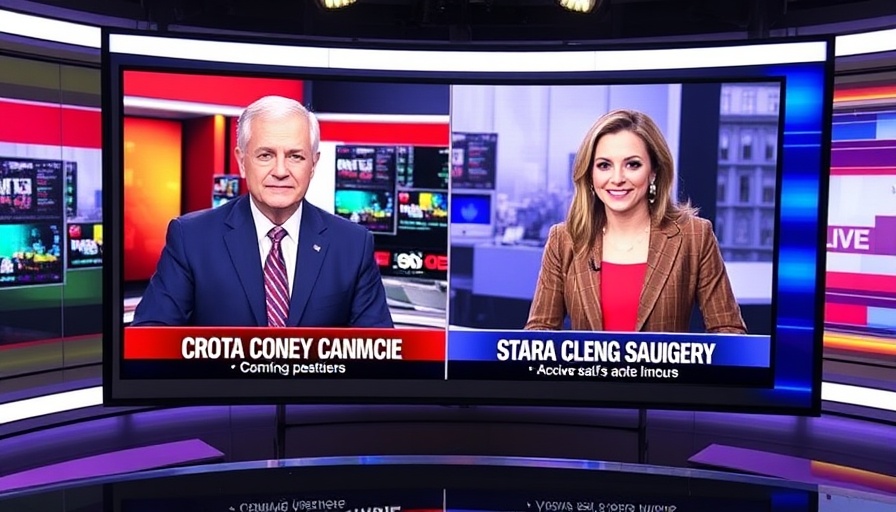
Peter Obi’s Critique: Unpacking the Timing of President Tinubu’s St. Lucia Visit
In a pointed critique, former presidential candidate Peter Obi has publicly questioned President Bola Ahmed Tinubu's decision to embark on a state visit to St. Lucia amidst a backdrop of acute domestic crises in Nigeria. Obi's remarks encapsulate a growing sentiment that the presidency prioritizes international relations over pressing local issues, mirroring the frustrations of millions grappling with insecurity and economic hardships.
In 'Peter Obi Criticises Tinubu's Saint Lucia Visit', the discussion dives into the implications of political leadership decisions, prompting a deeper examination of domestic priorities.
Domestic Turmoil Overshadowing International Engagement
Obi's criticism shines a light on a poignant question: how can a leader justify international travel when the nation faces severe challenges such as widespread hunger, deadly floods, and escalating insecurity? Specifically, he referenced the catastrophic flooding in Niger State, which has reportedly taken over 200 lives, as a stark reminder of the immediate crises requiring the president's attention.
“The president should be leading from the front during these turbulent times,” Obi stated, emphasizing that a leader's primary responsibility lies in addressing the welfare of their citizens before embarking on foreign engagements. This perspective resonates widely among Nigerians who feel neglected in favor of diplomatic niceties.
The Implications of Political Disconnect
The juxtaposition of Tinubu's Caribbean visit against the backdrop of domestic distress highlights a growing chasm between political leaders and the populace. Critics argue that such actions can foster a sense of disillusionment and mistrust among citizens who observe their leaders prioritizing appearances on the world stage over tangible, meaningful progress at home.
This sentiment aligns with broader criticisms of political elites in Nigeria, who are often seen as detached from the lived experiences of ordinary citizens. The unresponsiveness to critical issues raises the stakes for future political engagements as citizens grow increasingly vocal about their discontent.
Future Implications for Governance in Nigeria
In light of these criticisms, the future of governance in Nigeria could witness a significant shift depending on how active political leaders engage with pressing issues. The coalition of public anger surrounding the presidency’s perceived negligence may not only impact Tinubu's standing but also shape the political landscape leading into the 2027 elections. Political parties must reevaluate their strategies to align more closely with citizens’ needs if they wish to retain electoral poll support.
Obi's statements serve as a rallying cry for other political figures to prioritize home services over foreign accolades. It provokes a critical examination of national allegiances and responsibilities amidst global engagement.
Transparency and Accountability: Calls for Action
The fallout from Tinubu’s visit further compounds existing calls for transparency and accountability in governance. As pressure mounts for greater openness, especially regarding the allocation of security funds and disaster response, citizens are seeking a leadership that demonstrates a commitment to curbing corruption and ensuring that public resources are used effectively to address national emergencies.
In an era where information travels faster than ever and public sentiment can shift drastically, leaders who fail to respond to current realities risk being marginalized by their very constituents, leading to potential unrest. Obi’s stance articulates the call for political leaders to maintain a balance between international representation and domestic obligation.
Final Thoughts: Building Trust in Leadership
The contrast between Obi’s critique and Tinubu’s state visit underscores a crucial aspect of democratic governance: the imperative for leaders to build trust with their electorate through timely and judicious action. As Nigeria navigates its path forward, the expectation is that political leaders will prioritize the needs of their citizens, constructing a society where engagement in international dialogue does not come at the expense of domestic stability.
As the broader narrative unfolds within Nigerian politics, all eyes will be keenly focused on how the current leadership addresses pressing domestic issues and whether it can repair the trust deficit existing between the leaders and the led.
 Add Row
Add Row  Add
Add 


Write A Comment